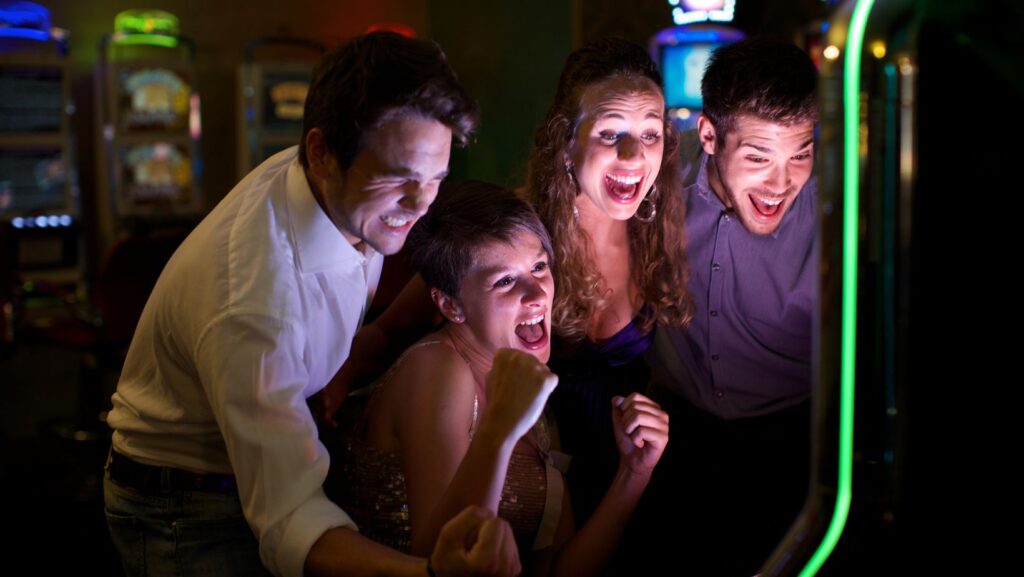Gamblers can be some of the most superstitious people around. Many players of Lukki and other casinos adhere to elaborate pre-game rituals and use lucky charms of all kinds to try to influence the outcome when money is on the line. These customs have developed over centuries of betting history and seem to give players and spectators a sense of control and power over an outcome that is ultimately ruled by chance.
Let’s delve into some of the most common gambling superstitions and discover why people believe certain rituals, personal items, numbers, and colors can bring good luck at the tables, track, and stadiums.
Common Gambling Lucky Charms and Rituals
Gamblers have all kinds of peculiar rituals and customs involving clothing, behaviors, personal mementos, numbers, colors, and more that they believe help increase their chances of winning. Some of the most widespread include:
- Wearing red underwear – this stems from commercial gambling boats where red lingerie was hoisted up the ship mast to bring luck.
- Blowing on dice before rolling – I thought of imbuing the “life force” to help direct the outcome.
- Carrying a personal lucky charm like a rabbit’s foot.
- Eating lucky foods pre-game like lemons or oranges.
- Obsessive pre-game routines and behaviors.
Sports fans also have superstitious rituals to try to help their team win like sitting in the same seat or spot on the couch every game.
Origins of Gambling Superstitions
Many gambling rituals and lucky charms can be traced back centuries and tend to fall within a few major categories:
Attempting to Sway Luck
Carrying a personal lucky charm, wearing a certain color, and performing various pre-game rituals are done with the belief that they can influence luck and randomness.

Blowing on dice, crossing fingers, wearing red underwear, and not changing “lucky” clothing during a winning streak represent attempts to control destiny.
Imitative Magic
Imitative magic is based on the “like causes like” principle of attraction. An example is sports fans dressing in team colors and mascots to show unity and identification in order to help the team win.
Contagious Magic
This involves transferring energies and essences between objects and people. Examples include keeping a personal lucky charm like a coin from a big win or asking a dealer or player on a winning streak to blow on dice or wave hands over cards to share their “luck dust.”
While it seems crazy to think a pair of red undies or rabbit’s foot holds any sway over chance, these customs give gamblers and fans a sense of personal power to influence the unknown.
Gambling Numbers and Colors
Beyond personal superstitions, some universal gambling beliefs apply across casino games and sports betting. Specific numbers and colors are thought to be especially lucky or unlucky.
Lucky Numbers
- 7 – It shows up frequently in slotspeak.com/fantasma-games/ reels and is the most commonly rolled number in craps.
- 13 – Despite being unlucky in Western culture, it’s revered in baccarat as the first card dealt is traditionally face up.
Unlucky Numbers
- 4 – Pronounced “death” in Chinese cultures where gambling is hugely popular today. Tables with a #4 are routinely avoided.
Lucky Colors
- Red – Symbolizes good fortune and joy in Chinese culture. Most Chinese casinos feature heavy red decor.
- Green – Represents wealth and money to many gamblers and appears on most casino table layouts.
Unlucky Colors
White – Contrasts the lively colors of gambling and evokes loss/death. Rarely featured on casino carpets or table layouts.
| Type | Superstition | Origin | Reasoning |
| Lucky Charm | Carrying a rabbit foot | Ancient belief in talismanic power of animals | Imitative magic – transfers animal’s luck |
| Ritual | Blowing on dice | Ancient African tribal ritual | Attempt to infuse “life force” and control outcome |
| Numbers | Avoiding #4 | Chinese culture | Four has “death” sound – unlucky |

While it seems crazy to think a pair of red undies or rabbit’s foot holds any sway over chance, these customs give gamblers and fans a sense of personal power to influence the unknown.
Psychology Behind Superstitions
Underneath the wacky rituals and lucky charms lies real psychology. These superstitions let gamblers feel like they have some control over outcomes largely ruled by randomness.
Illusion of Control
Believing behavior influences luck gives a comforting illusion of control over uncontrollable games of chance. Gamblers try to impose order through elaborate rituals.
Reinforcement
When rituals coincide with winning, they get reinforced despite no real causality. Fans on a sports winning streak keep wearing the same “lucky” shirt as long as the team keeps winning.
Cognitive Biases
Biases like confirmation bias lead gamblers to remember and assign more meaning to wins they had their lucky CharmCharm vs. losses.
So, while intellectually, most know superstitions don’t actually influence random outcomes, they satisfy emotional needs and let gamblers impose a sense of order on chaos. The thrill of betting then becomes not just anticipating results but partaking in rituals that promise to help conjure a win.
